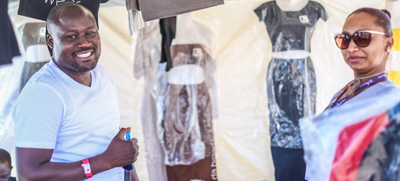
Film Review – The Book Thief
 Director: Brian Percival
Director: Brian Percival
Screenplay: Michael Petroni
Cast: Roger Allam, Sophie Nélisse, Nico Liersch, Geoffrey Rush.
Genre: Historical fiction
Ratings:***
The movie starts out in April 1938. A voice representing Death (Roger Allam) tells how the young Liesel Meminger (Sophie Nélisse) has grabbed his interest. Liesel is travelling on a train with her mother (Heike Makatsch) and younger brother when he suddenly dies on the train. At his burial she picks up a book that has been dropped by one of his gravediggers, which is where her book stealing begins. Liesel is then delivered to foster parents Hans (Geoffrey Rush) and Rosa (Emily Watson) Hubermann, because her mother, a Communist, is in danger. She finds a friend in her neighbour, Rudy Steiner (Nico Liersch).
We discover that she is unable to read and write in her first day at school. She is teased by schoolmates who chant “dummkopf” at her, meaning “dunce” in German. One of the boys, Franz Deutscher, challenges her to read just one word to which Liesel responds by beating him up. When Hans, her foster father, realizes that Liesel cannot read, he begins to teach her, using the book that she took from the graveside. Liesel becomes obsessed with reading anything she can get her hands on.
There is a night of violence against the Jews (known historically as Kristallnacht). Max Vandenburg (Ben Schnetzer) and his mother, who are Jewish, are told by a friend that only one of them can escape and Max’s mother forces him to go. Max goes to the Hubermann’s house where Rosa and Hans give him shelter. Max is the son of a man who saved Hans’ life in World War I.
Max is initially allowed to stay in Liesel’s room while recovering from his trip and they begin to become friends over their mutual hatred of Hitler, as Liesel blames him for taking her mother away.
Later Max is moved to the basement and he gets ill.
Liesel, who can now read fluently, then begins to borrow books from the mayor’s house to read to Max. Around this time World War II begins.
The story continues around keeping the secret of the Jew and trying not to get caught. Rudy, the neighbour, is the one who gives Liesel the name Book Thief to which she only smiles and responds by calling him fish, for swimming to recover her journal from the river.
The movie starts out a bit boring and seems to linger on each scene. Still, it is a very powerful story and gave me a totally different view of ‘The Diary of Anne Frank’. Somehow I am able to relate more to both stories, though one is fiction and the other non-fiction.
The movie, which is based on a novel by Markus Zusak, is too long and possibly too plain.
I felt more should have been done to give it some excitement. As thought provoking as the story may be, it would seem that after all we have learnt and heard about the Nazi period, there should definitely be a more captivating story to tell than that of an orphaned girl.
Although the acting is good, I felt that Liesel could have been a bit more energetic, but perhaps this was intentional.
The picture quality is fine, appropriate for a movie not needing any extra picture enhancements. Jonathan Kim, a film critic for ReThink Reviews and the Uprising Show, posted on the Huffington Post website, www.huffingtonpost.com, writes “But maybe the bigger issue is that, after decades and hundreds of movies, maybe there really isn’t anything new to be said about World War II, the Nazis, and the Holocaust that hasn’t been said (and said very well) before, unlike with slavery and the comparatively scant number of dramatic films on the topic. While it’s important to make sure the Holocaust isn’t forgotten, I don’t feel the need to keep watching movies belabouring its lessons. Maybe that’s why a film like12 Years A Slave feels so important and needed while The Book Thief, while technically solid, just feels like unnecessary, boilerplate Oscar bait.”












































